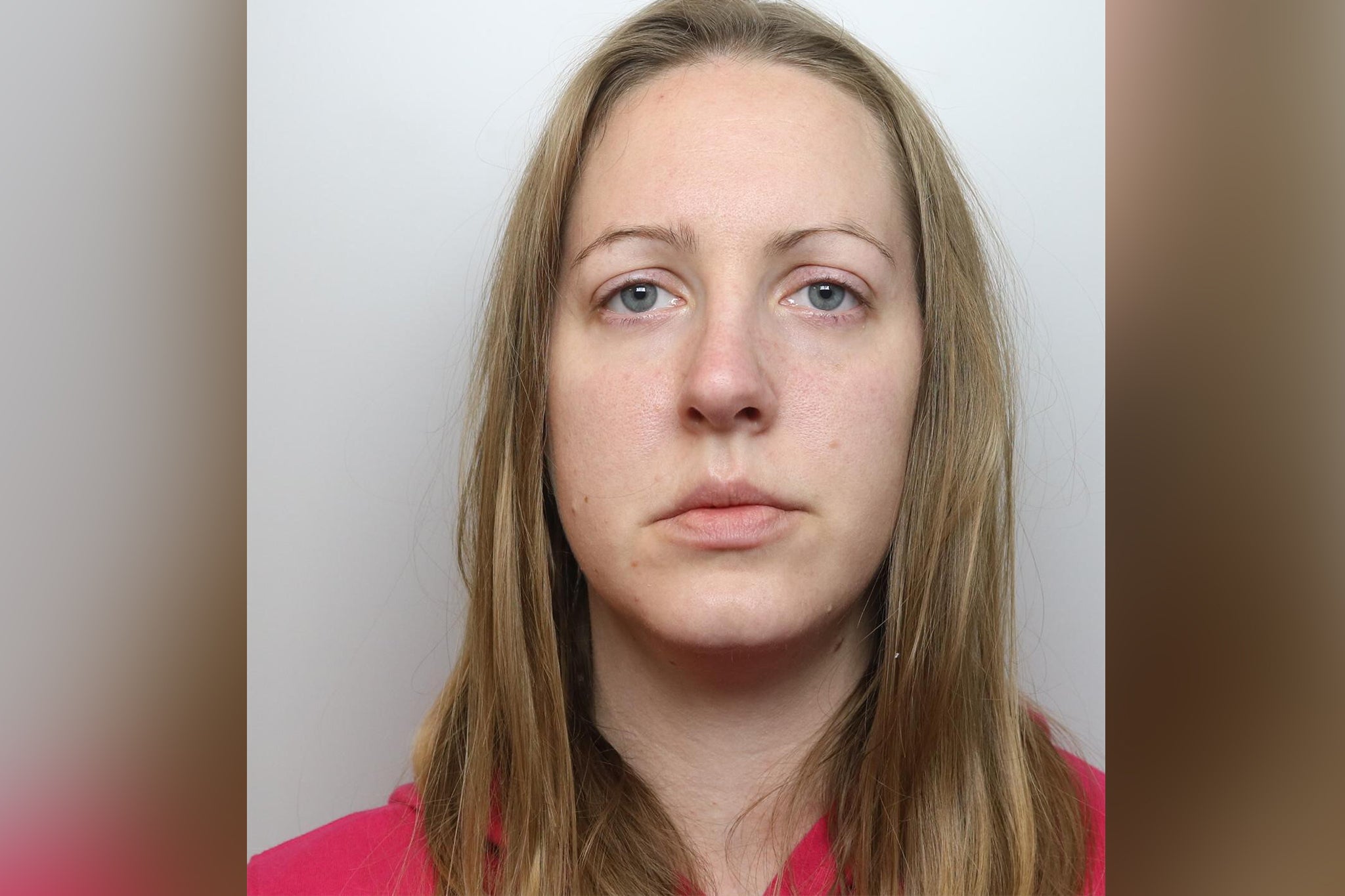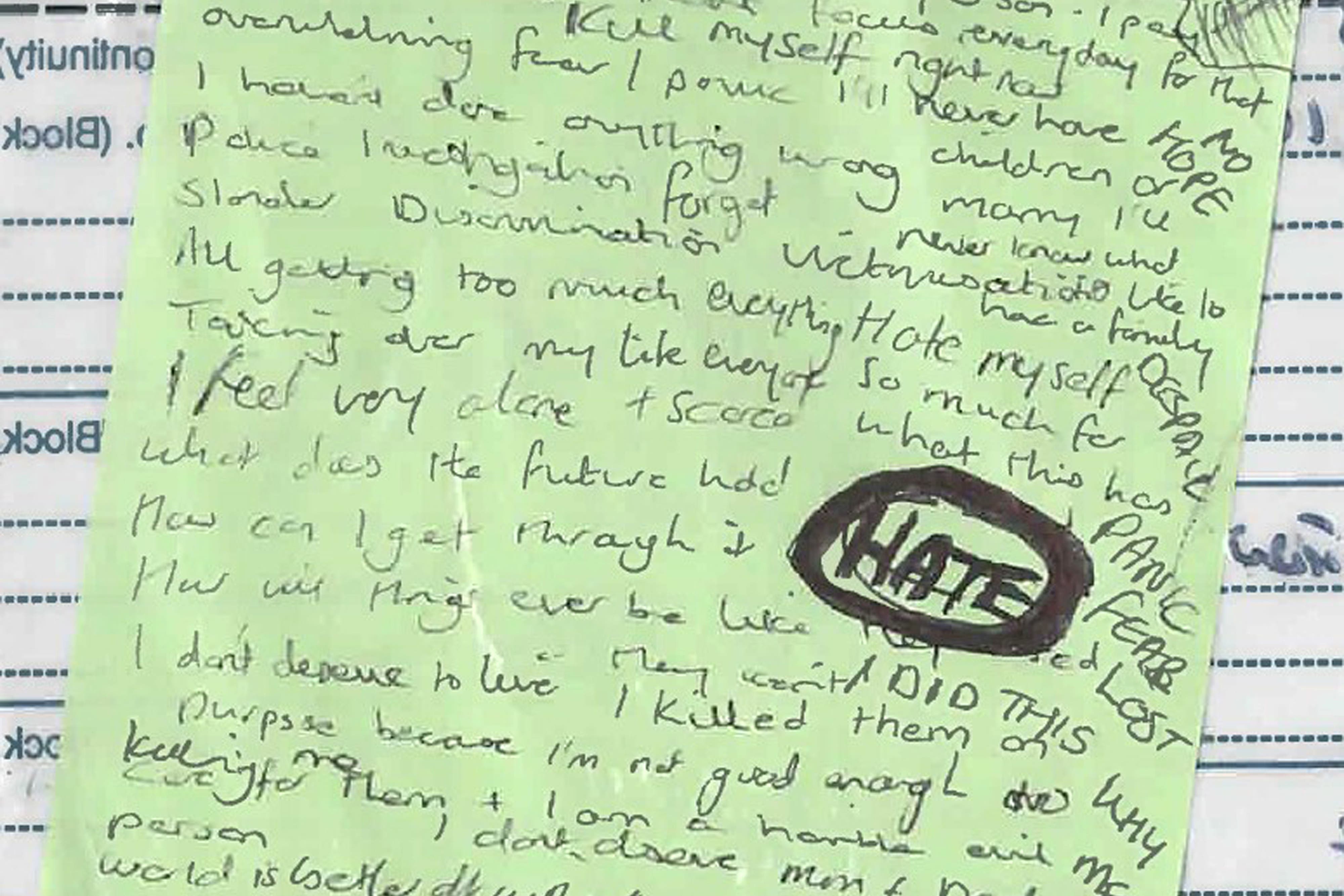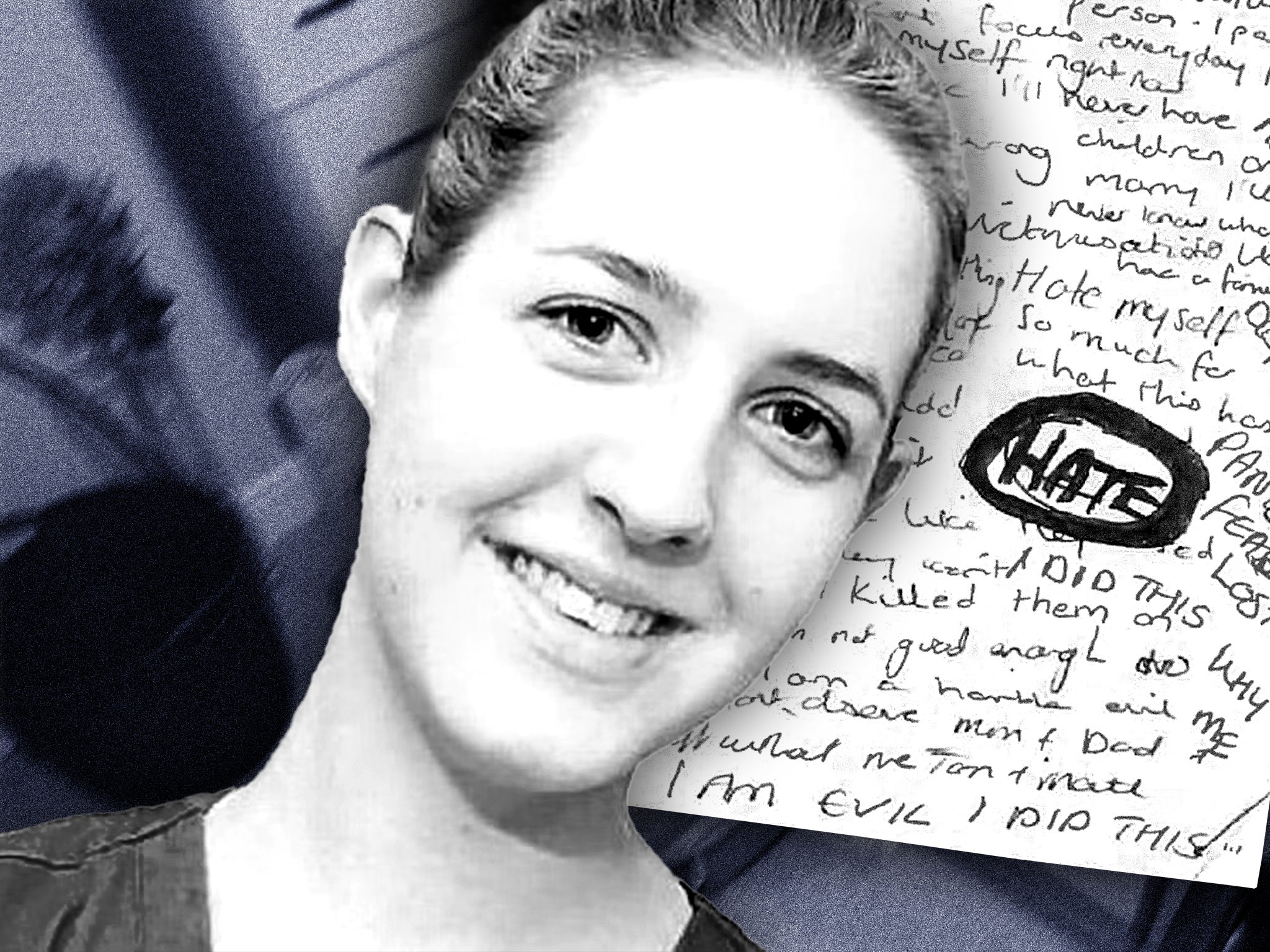Lucy Letby used ‘code’ in diaries that helped detectives crack case
Lucy Letby, one of the most prolific child killers in modern British history, has been jailed for life
Detectives investigating serial killer nurse Lucy Letby say they were “surprised” by the amount of material they found at her home and that a “coded system” in her diaries helped officers uncover key evidence.
Letby, one of the most prolific child killers in modern British history, has been jailed for life for murdering seven newborn babies and trying to kill six more between June 2015 and June 2016 in the neonatal ward at the Count of Chester Hospital where she worked.
The 33-year-old, only the fourth woman in UK history told she will never be released from prison, deliberately injected infants with air, force-fed them with milk or poisoned them with insulin during a “cruel, calculated and cynical campaign of child murder”.
Investigators looking into Letby when she was first arrested on 3 June, 2018 found dozens of post-it notes and scraps of paper at her home in Blacon, Cheshire, which were shown to jurors during her 10-month trial at Manchester Crown Court. One note said: “I killed them on purpose because I’m not good enough.”
She also wrote several diary entries detailing the police investigation into the murders and investigators said they were taken aback by how much Letby documented about the dead children. When Leby was arrested for a second time a year later, detectives hoped she had continued to make notes.
“The amount of material we found at her home address was, I think, a massive surprise to us when she was first arrested,” Rob Woods, Cheshire Constabulary detective inspector, said in a documentary the force made about the investigation.

“It gave us a really good steer for the second occasion as to what sort of things we were looking for,” he added. “So as an example, something that’s been very useful to the enquiry has been Miss Letby’s diaries. They appeared to be and it became clear later that it was almost a code of coloured asterisks and various other things put in a diary that marked significant events.”
Senior doctors working with Letby warned for months that she had been the only medic present during the sudden collapses and deaths of a number of premature babies at the hospital in North West England.

However, their concerns were ignored and one consultant said babies could have been saved had hospital management acted sooner. But senior doctor Ravi Jayaram claimed he was persuaded not to contact the police because it would harm the hospital’s reputation.
Health secretary Steve Barclay announced an independent inquiry on Friday after Letby was found guilty of the murders.
But he stopped short of setting up an inquiry with statutory powers, meaning witnesses will not be required by law to attend, raising concerns that hospital managers could avoid being held accountable for putting reputation before child safety.
The grieving families of Letby’s victims have demanded the government order a full independent public inquiry into how the nurse was able to go on a prolonged killing spree at the neonatal unit.

The families join senior doctors and MPs who want the inquiry upgraded, amid fears it lacks the powers needed to unearth potential evidence of a cover-up at the Countess of Chester Hospital and prevent a similar horror from ever unfolding in the NHS again.
And on Monday the doctor who first raised the alarm over Letby has called for NHS managers to be held accountable for ignoring concerns.
Lead paediatric consultant Dr Stephen Brearey wants hospital managers to be regulated in the same way as doctors and nurses, after Britain’s most prolific child killer was allowed to continue in her role until June 2016 despite concerns being raised by clinicians months before.
Ministers initially said the decision to hold a non-statutory inquiry into the case was the right one because it would be more flexible and allow the victims’ families to get justice more quickly. But No 10 has since indicated that the probe could be upgraded after the government came under pressure to give it more powers to compel witnesses.




